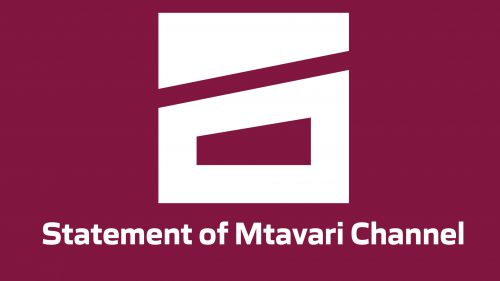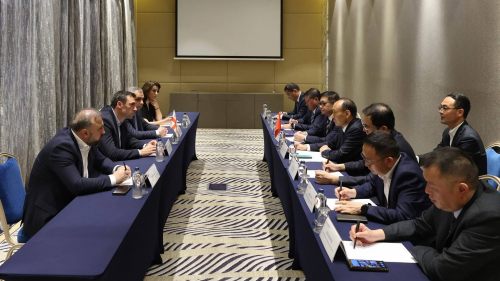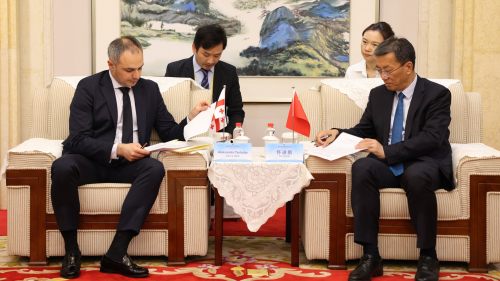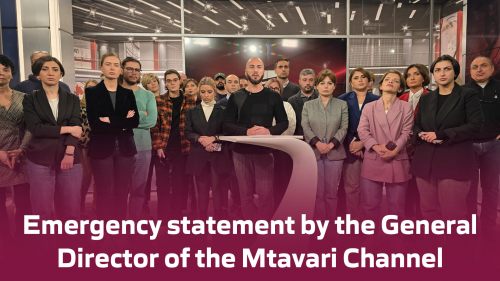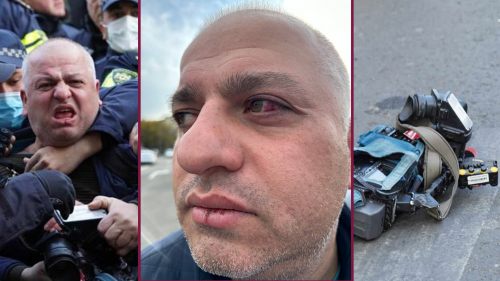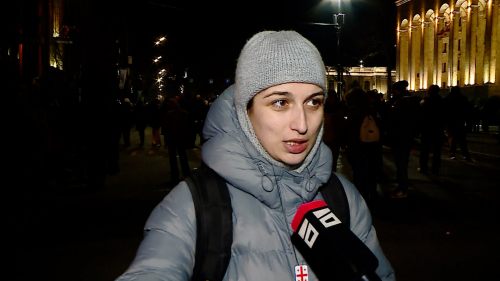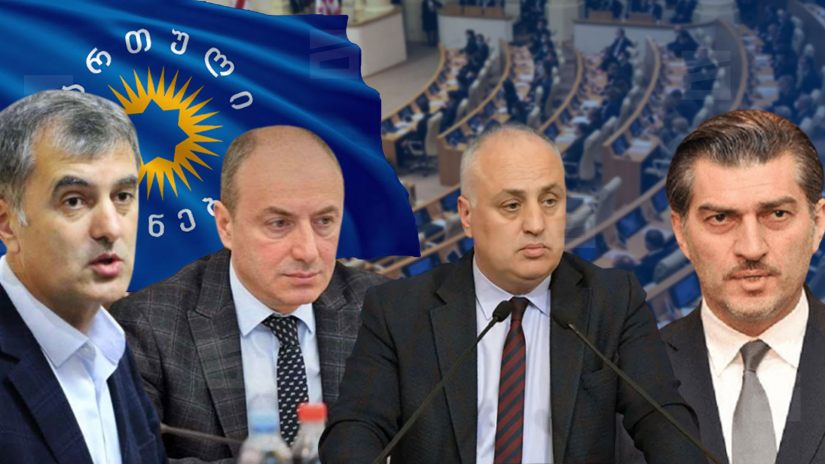
Majority MPs Sozar Subari, Dimitri Khundadze, Guram Macharashvili and Mikheil Kavelashvili are spreading another statement of anti-Western rhetoric and attacking the US Embassy again.
According to them, Georgia is considered to have a certain role to fulfill as directed by the embassy. In their view, our only function for America is to contain Russia. According to the parliamentarians, "Americans are not making any real investment in Georgia, moreover, they have received $2.5 billion of material benefits from Georgia.
The majority MPs say that "the question is whether Georgia has received more material benefits from America or America from Georgia from 2013 to date."
The deputies are asking the U.S. Embassy to clarify what its main strategic objective in allocating funds to Georgia is and to determine the purpose of this funding.
"In recent months, the U.S. embassy has often reminded us that its state has helped Georgia by $6 billion over the past 30 years. There is a saying that a gifted can not be judges, i.e. when you receive something, you should not enter into a discussion about the real value of this gift, as a rule. However, we are all well aware that the United States of America is not a charity, so it does not give anything to anyone, and when allocating money to other countries it acts according to its interests. So the main thing that should interest the public is the purpose for which American money is allocated.
For example, if we remember this funding as a counterweight to the interests of opening a second front in Georgia, it becomes clear that no amount of 6 billion can replace the damage our country may suffer from the war with Russia. We all remember that Georgia suffered several billion dollars in losses during the 2008 war, as well as lost territory and loss of life.
If we are told that the country was financed by several billions to strengthen democracy, we cannot even seriously comment on that. The model of democracy that the Americans have very insistently reminded us of through the Saakashvili regime has a very different content, but we will not dwell on this model today and will leave this topic for the future.
Georgia is being considered for a certain role, which it has to play at the behest of the embassy, and the most interesting thing is to analyze this role. The fact is that our only function for them is to contain Russia. They have been preparing Ukraine and Georgia for this function for years, but the Georgian government did not go and destroy the country, which the Americans cannot forgive us.
In terms of funding, several factors are particularly interesting:
- According to the official data published by the Americans, U.S. funding for Georgia over 30 years, contrary to what the ambassador said, was not more than $6 billion, but $4.5 billion, of which only $3.5 billion was actually transferred to Georgia;
- In 2013-2021, i.e., after the Georgian Dream came to power, U.S. funding was only $1.15 billion, of which more than $200 million was the residual amount of special funding allocated to partially eliminate the grave consequences of the 2008 war. By comparison, under the Saakashvili authoritarian regime, the United States funded the Georgian government by $2.23 billion, or twice as much. Of that, the largest amounts were in 2006 ($411 million) and 2009 ($625 million);
- A significant portion of the U.S. money-more than $700 million-was spent on NGO activities, including campaigns against the state and the church. In the last few years, the largest share of American funding has gone to the NJOs, which is essentially the maintenance of an American agency, which, to put it mildly, cannot be seen as aid to Georgia;
- In recent years, according to the standard set by the Americans, the Georgian government has allocated 2 percent of the state budget to defense, which naturally puts a heavy burden on the country. Most importantly, with over 30,000 Georgian soldiers serving in the Iraq and Afghanistan missions, the U.S. has received exactly $2.5 billion in support from Georgia (if we multiply the amount spent by the Americans on one American soldier by the number of Georgian soldiers, we get exactly $2.5 billion). Naturally, we say nothing about the human sacrifices made by Georgia, which are invaluable.
Given all of this, the question becomes whether Georgia has benefited more materially from America or America from Georgia since 2013. If any of the data we have provided is incorrect, we urge the embassy to publish detailed information about the principle and purpose of American funding for Georgia in past years, including how much money was actually left in Georgia and how much was returned to America. Unfortunately, the information published by the embassy so far is very sparse and does not give the Georgian public a clear picture of the details of the funding, which further deepens our negative suspicions.
The public well remembers how they blackmailed the Georgian authorities last year by not giving a $75 million loan from the European Union. If U.S. funding were to bring any serious results for the state and its economic strengthening, naturally we would be threatened more than once that they would stop it. If that does not happen, then for us it would be further proof that most of the funding is not intended for either the development of the country or the strengthening of the political system, but is mostly used to pursue American interests in Georgia. A few components of funding were an exception - for example, funds allocated for small-scale economic projects, funding for student education in the United States, as well as funds allocated through the Millennium Challenge Fund, which was applied to education.
All the circumstances we have explained above show that the Americans are not making real investments in the development of Georgia. Moreover, they have received 2.5 billion dollars worth of material benefits from Georgia. We have already said that U.S. funding in Georgia is aimed not at strengthening the democratic system, but at undermining it and we will provide the public with much more information about that later.
Finally, we would like to ask the embassy again what its main strategic objective is when it allocates funds to Georgia and determines the purpose of that funding. It will be interesting if the embassy, in the context of its strategic objective, provides the Georgian public with detailed information about the purpose of the allocated funds. We are sure that if the public receives such detailed information, it will become clear to them that the Americans are not guided by the motive of charity and promotion of the well-being of the Georgian population, but by the interest of expanding the influence of their own agency, which should turn Georgia together with Ukraine into a blind co-executor of the global American scenario.
Once again, we call on the American embassy to be more transparent and disclose detailed information related to funding. We have little reason to be optimistic, however, because we know for a fact that the disclosure of this information will reinforce the alarming conclusions we have drawn in the perception of Georgian society.



